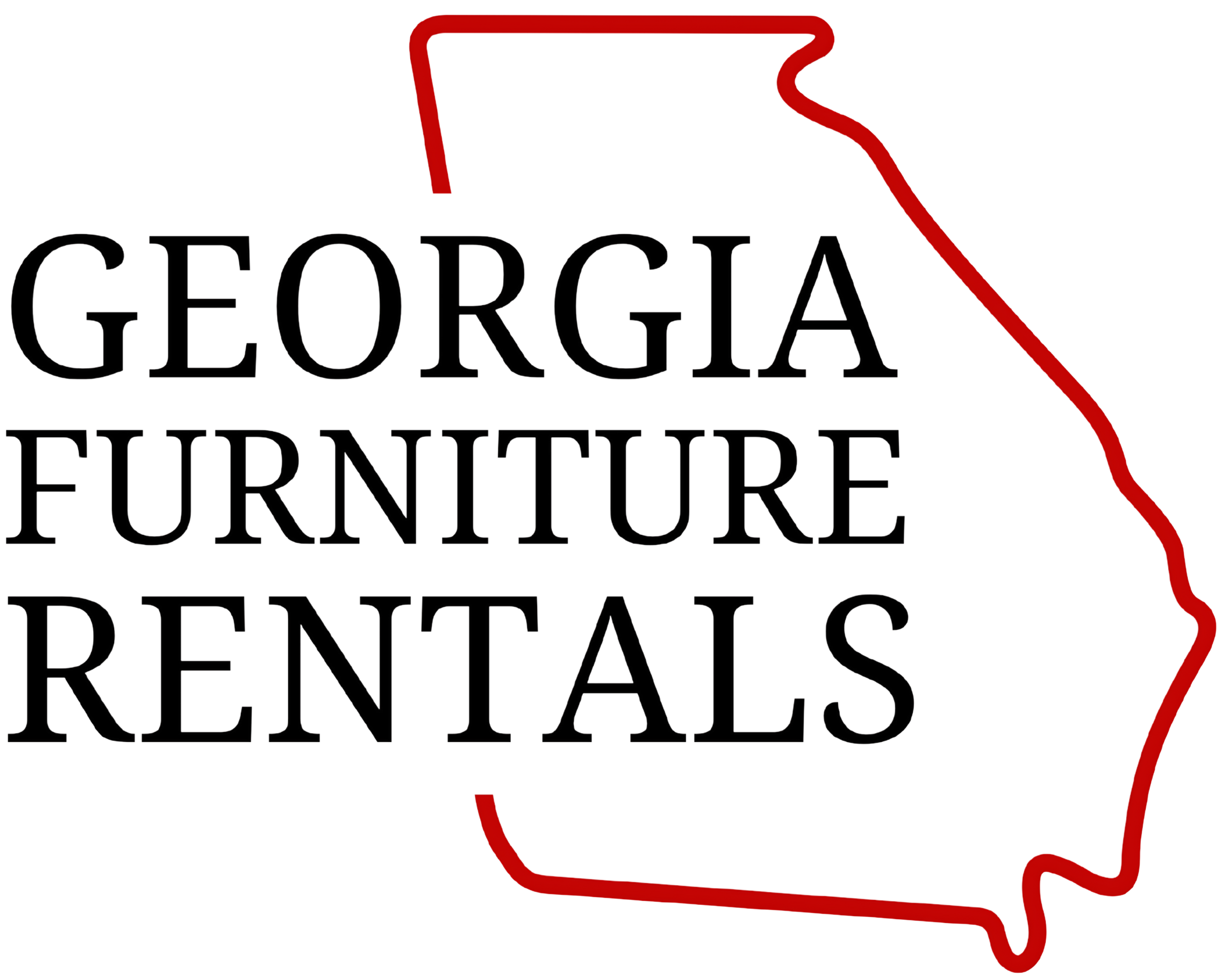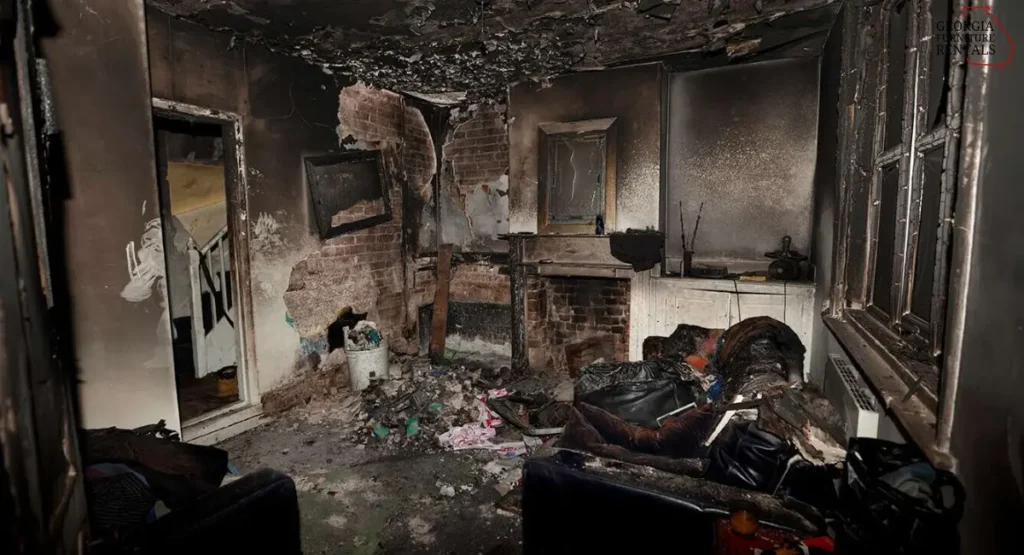
Mold is among the most frequent and vexing issues renters encounter. It can spread quietly behind walls, beneath bottoms or in musty corners, causing health problems and property damage. And while numerous renters believe that their insurance will cover the issue, it isn’t always true.
Still, learn how renters insurance cover mold in different situations, If you want to cover yourself and your things.
What you may not realize is that mold doesn’t just ruin walls it can also be the end for your furniture. Our home and valuables are with heavy mold-resistant furniture. To find quality choices that will also help keep your living space safe, visit Georgia Furniture Rent.
This in-depth companion covers when and how your renters insurance can help with mold damage, what’s barred, and how you should cover yourself.
When Does Renters Insurance Cover Mold Damage?
Renters insurance generally covers your particular property from certain “threats,” like fire, theft, or water damage caused by an unforeseen action. But coverage for Mold frequently comes down to how and why the Mold grew.
Still, like burst pipes, accidental water discharge, or storm damage, if the Mold grew as a result of a covered pitfall. But in the case of neglect, poor conservation, or long-term leaks, most insurers will reject it.
Common Causes of Mold That Your Renters Insurance Should Cover
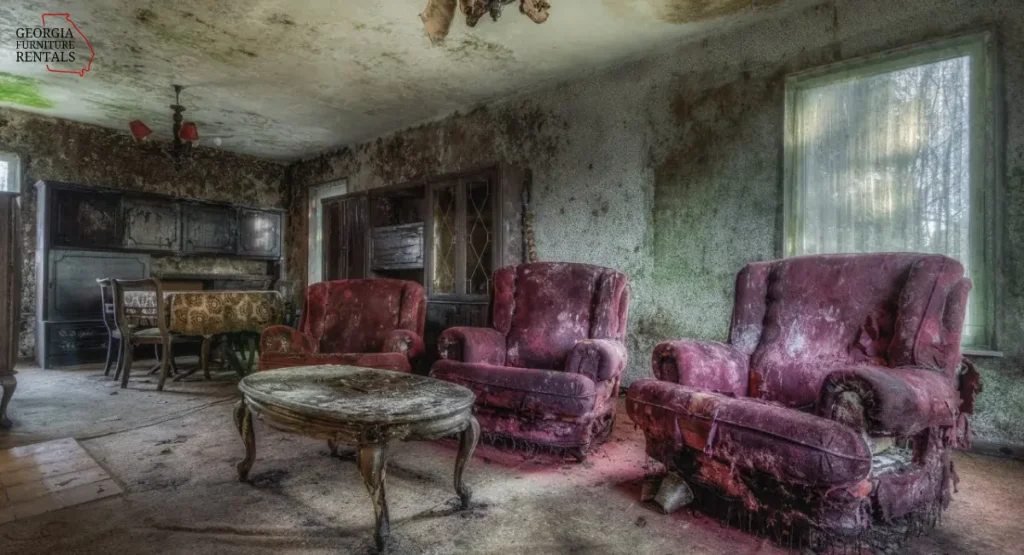
Knowing which scripts are ensured, in turn, can help you avoid any nasty surprises. This is what renters insurance generally covers when it comes to mold.
Unforeseen water damage: If a pipe bursts and your cabinetwork is soaked, with mold following, your renters insurance could pay to clean up and repair the mess.
Appliance failure: Mold may be covered if caused by a washing machine or air conditioning unit that breaks, and the issue was accidental and unforeseen.
Storm or rain penetration: If wind or hail damages your roof that allows water and mold to grow inside your apartment, insurance could come through.
Fire repression water: A fire you put out with water, and that causes Mold at a later time, is also likely to be covered.
In any of these scripts, the central element is unanticipated damage, not long-term standing water issues that are left unfixed.
Will Renters Insurance Cover Mold Damage Following a Leak or Flood?
This is one of the most frequent inquiries tenants pose. The result will depend on the cause of the leak or flooding.
Dense pipes or appliances: If the leak was the result of an accident and reported in a timely fashion, your renters insurance may protect it to cover Mold.
Flooding from outside water sources: it’s not your bed or rain barrels, so no renters insurance policy will cover flooding due to a natural disaster( not rising groundwater either). You’d have to buy flood tide insurance for the ultimate.
Late reporting: If you waited an exorbitantly long period of time to report a leak while Mold settled, your claim could be rejected for neglect.
So, will renters insurance cover mold damage after a leak? Yes, but you need to act immediately, and the cause must be a covered peril.
Do You Need Mold Coverage on Your Renters Insurance Policy?
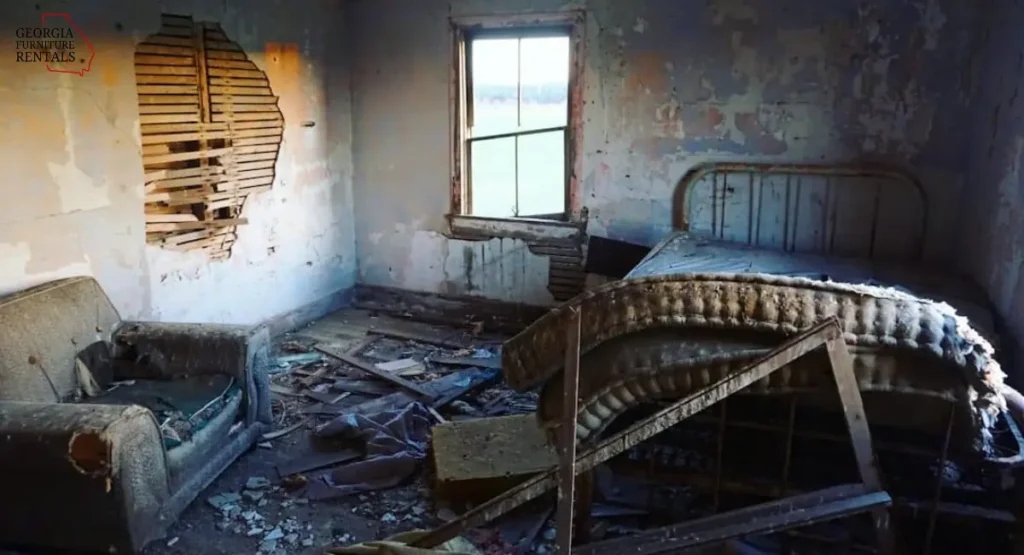
Renters insurance generally does help pay for remittal, junking, and form costs associated with your particular things, such as cabinetwork, apparel, and electronics, when Mold is covered. It’s coverage that can be used to remove and clean up mold, but the quantum may be limited, generally between$ 1,000 and$ 10,000 with your policy.
Some insurance also covers professional cleaning services, dehumidifiers, or removed particulars that came polluted. But it’ll not cover the cost of repairing any structural problems in the apartment that’s left to the landlord.
Still, ask your insurer about voluntary mold signatures to extend your coverage if you’re concerned.
How Much Mold Protection Do You Get with Renters Insurance?
The quantum of coverage for Mold is largely variable by insurer. A number of traditional renters programs contain a nominal sublimit, $ 2,500 or lower, for mold-related claims. Some others will remove mold coverage altogether from the policy unless you buy a countersign or rider.
Then that’s what you can do.
- Check your policy for “mold,” “fungus,” or “wet spoilage” clauses.
- Check with your insurance company to see if mold coverage is part of their package or can be turned on.
- Still, you may consider limits if you have to live in a flood tide-prone or sticky area.
The further you can get ahead of the effects, the better your fiscal protection.
Black Mold and Renters Insurance: Are You Covered?
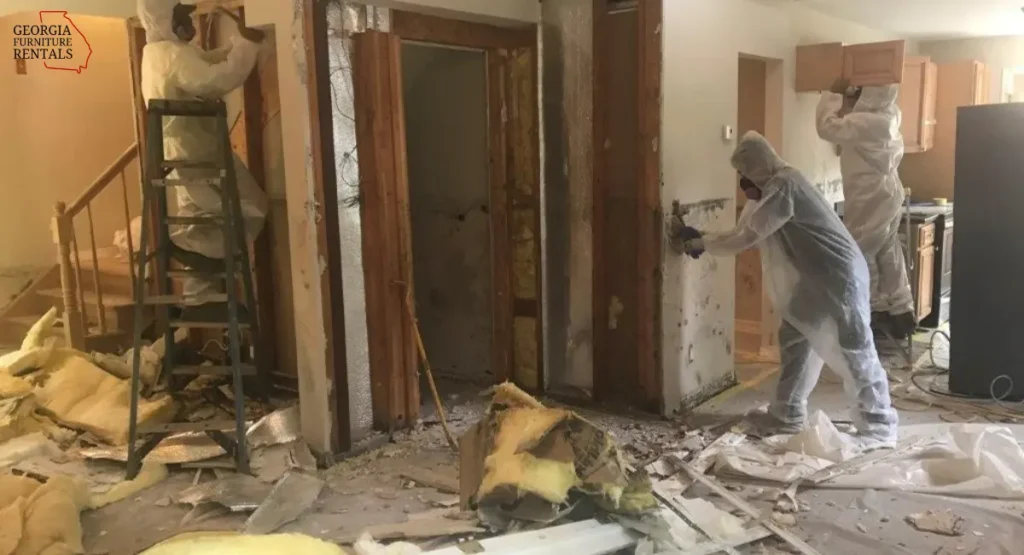
Black Mold ( Stachybotrys chartarum) is notorious for its poisonous properties and health hazards. It’s an assignment for insurance, too commonly, providers treat the mold just like any other variety of growth around your home; the cause will determine coverage.
Still, a burst pipe, your renters insurance might pay to clean up the Mold, if you have black Mold that sprang from a covered pitfall( for example. But if it’s from habitual humidity or lack of conservation, the coverage is rejected. As black mold junking can incur additional expenses, you might want to add mold-specific riders for fresh protection.
Would Renters Insurance Cover You If You Need to Move Over Mold?
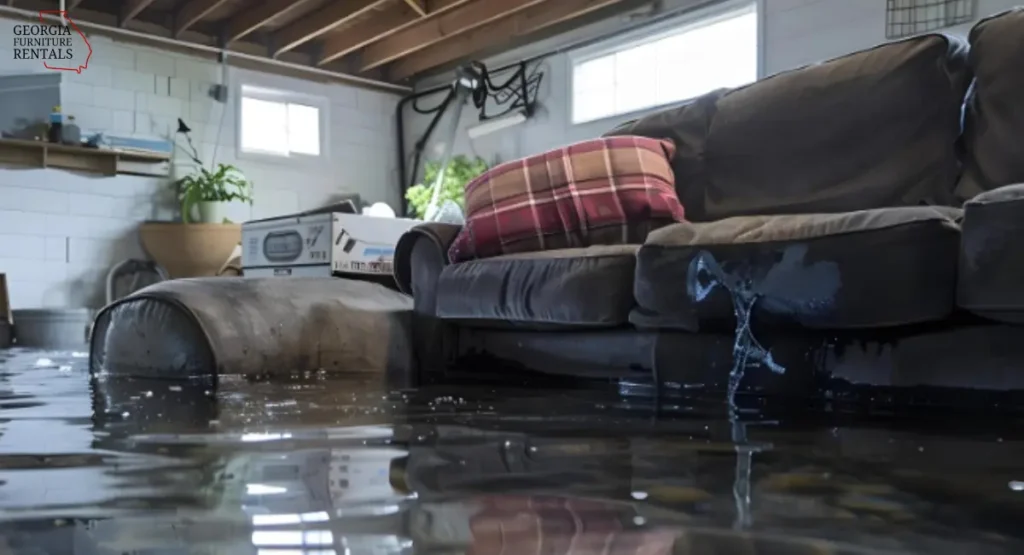
Yes, if a covered mold event makes your rental property unlivable, you could admit fresh living charges( ALE) from your renters insurance. That is, your insurance plan may also be suitable to cover.
- Temporary casing( hostel or reimbursement)
- Meals
- Laundry services
- Transportation costs
But this is only the case if the Mold was created by a covered pitfall, and not by seediness or continued humidity. I would always check this section of your policy, as the limits are going to vary.
How to Make a Renters Insurance Claim for Mold Damage

Still, filing a mold claim is fairly simple if you move quickly and have good documentation.
Follow this way:
- Report the problem right down to your landlord and insurance company.
- Snap the damage and take clear film or videos of damaged areas and particulars.
- Still, turn off the water to halt onsets of serious damage, if possible.
- Keep bills for repairs or cleaning, as well as temporary relocation costs.
- Work with the insurance adjuster they will survey and estimate the damage.
- Keep records of communication with your landlord and insurer for easy reference.
Immediate response demonstrates your liability and strengthens your case.
Why Tenants Need Renters Insurance
Insurance isn’t just about mold or damage to one’s effects; it’s a full course in protection for renters. It covers:
- Stolen particular property at home, down from home, or out of the country if the theft takes place within 40 days of departure.
- Liability coverage for when someone is injured on your property.
- Other living charges if your house is uninhabitable.
While the landlord has insurance on the structure, your renters insurance covers mold damage to your own stuff, a fact that numerous tenants don’t bother to consider. For just a many bones
per month, it could help you avoid thousands in charges you no way saw coming.
Caring for your furniture is just as essential as avoiding mold in your apartment. Go to Georgia Furniture Rent for fashionable, long-lasting furniture that can handle wear and tear and keep your home in great shape.
Conclusion About: Renters Insurance Cover Mold
Mold can be a health threat and a fiscal headache, but knowing how your renters insurance covers Mold is one way to avoid any nasty surprises. Quick tip: Mold performing from unforeseen, accidental incidents like a burst pipe is generally covered; Mold due to neglected maintenance isn’t typically covered under renters insurance.
Study your policy details, report leaks instantly, and consider adding mold signatures for further peace of mind. Thanks to the proper coverage and precautionary care, you can keep your things safe and lead a confident life.
FAQs :
Does renters insurance cover mold damage?
Yes, you might have mold coverage under renters insurance if it’s related to a covered pitfall similar to a burst pipe or accidental water leak.
Will insurance cover mold damage?
It’s under the insurance marquee if it’s unforeseen and accidental, not a result of neglect or poor conservation.
Does insurance cover mold exposure?
No, not generally. Renters insurance covers property damage from mold, not health problems due to exposure.
Still, will my rates go up? If I make a mold claim.
Yes, putting in a claim of any kind including about mold can lead to insurance rates going up when it’s time to renew.
Which insurance companies cover mold damage?
Most of the large insurers: Georgia Furniture Rentals, State Farm, Allstate, and Nationwide, among them, have mold coverage, although terms and limits can differ from policy to policy.
Our Business Details:
Address: 4073 Lavista Rd #311, Tucker, GA 30084, United States
Contact No: 470-760-8896
